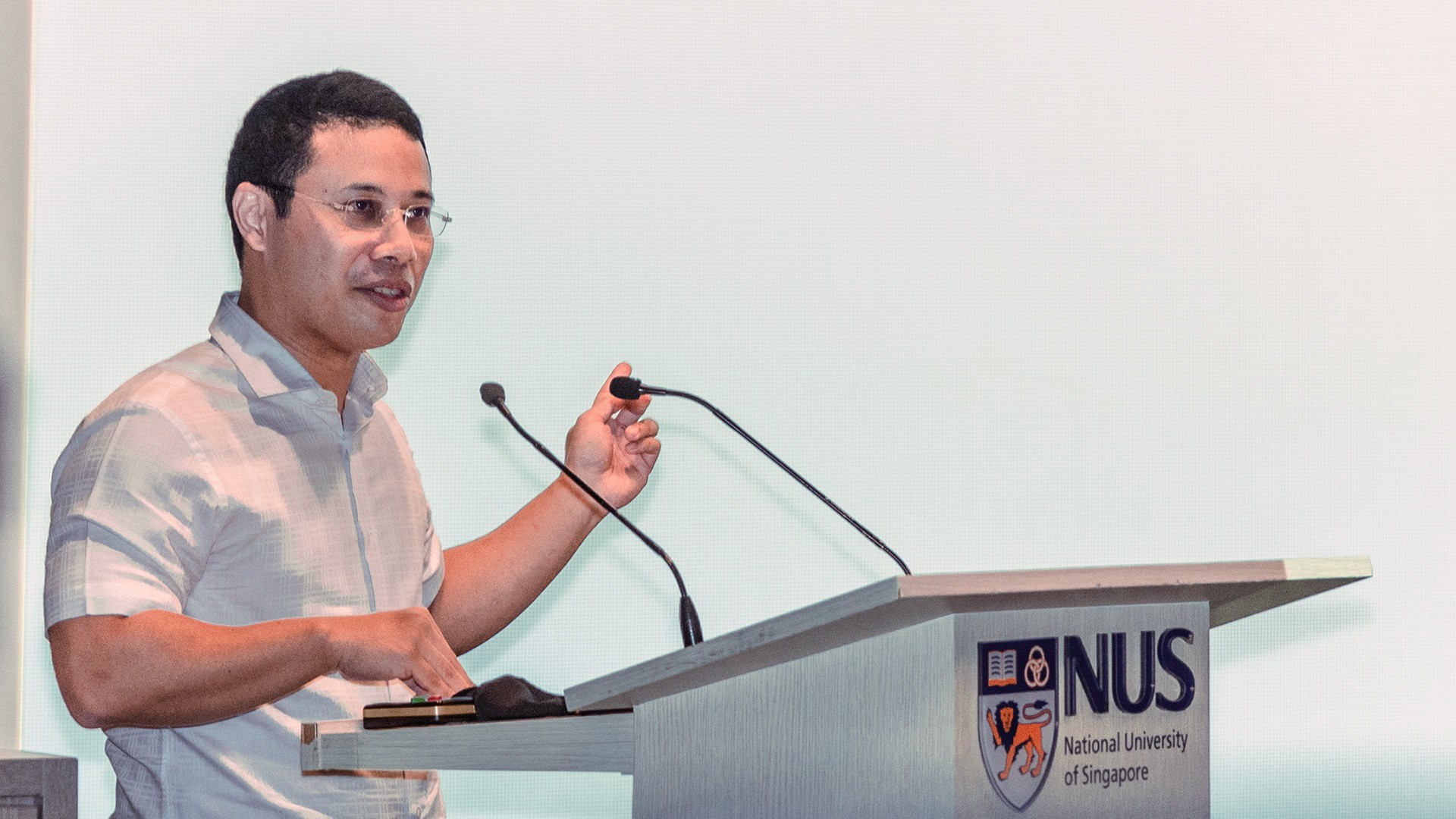Youth should come on board the sustainability drive: Minister Desmond Lee
COVID-19 may be the most consuming challenge of the present, but climate action will be the defining fight of generations, said Minister for National Development Mr Desmond Lee, as he urged youth to adopt sustainability as a core value.
“Just as multiculturalism is one of our defining traits, so too should sustainability be so ingrained in us and our future generations that it informs our actions and decisions, and the kind of society that we strive to be,” he said on 27 Aug at the Kent Ridge Ministerial Forum, the annual flagship event of the NUS Students’ Political Association.
Mr Lee, who is an alumnus of NUS, focused his keynote address on climate change, which has been dubbed a global emergency and a threat to mankind in Parliament. A recent report by the Intergovernmental Panel on Climate Change had found that even if nations sharply cut carbon emissions, the world is still likely to be 1.5 deg Celsius warmer in 2040 than it was pre-1900.
“They (The dangers of a hotter world) are not just theoretical. We can see them today,” he said. “Here in Singapore, we’ve seen heavy rains and flash floods lately. And as a low-lying island, many parts of our country would literally be underwater when sea levels rise.”
While Singapore is not a significant contributor to global emissions in absolute terms, he stressed that there is plenty that the country can still do to mitigate the effects of climate change, even by the young.
Today’s youth, tomorrow’s leaders
Providing an outline of the Singapore Green Plan 2030 launched earlier this year, Mr Lee said Singapore has safeguarded about 7,800 ha of land for nature reserves, nature parks and other dedicated green spaces – more than 10 per cent of the country’s entire land area.
Another 1,000 ha of green spaces will be added over the next 10 to 15 years, and one million more trees planted between 2020 and 2030.
On the transport front, the Government is improving public transport by expanding the cycling network, building more MRT lines and testing out innovations like driverless cars and electric vehicles. The aim is to phase out all internal combustion engine vehicles by 2040.
But these and other commitments under the plan will involve some trade-offs, he said, using the example of a carbon tax. While meant to help reduce emissions, companies could pass on some of these costs to consumers through higher prices.
“So our sustainability commitments will require our resolve. And above all, what we hope for is a deep shift in our culture,” noted Mr Lee, while emphasising the role of youths in pushing through initiatives that will be key in realising a decarbonised future.
Addressing the NUS students present, both in person and virtually, he said some will work as future engineers to electrify vehicles here and upgrade Singapore’s charging infrastructure or enhance its green energy capabilities.
Some will contribute as ecologists or conservationists to protect the island’s biodiversity for future generations. Others will become architects, developers or builders, who would design and build Super Low Energy, Net Zero Energy buildings or even Positive Energy buildings.
“There are also plenty of opportunities for you to get involved, starting from today,” he said.
Take action, today
Mr Lee urged those present at the forum to step up and participate in building a better future, noting that many young people have banded together to not just speak up on climate issues but also find ways to resolve them.
He highlighted several initiatives, such as the Singapore Youth Voices for Biodiversity that not only organises discussion forums but also participates in Government briefings, scrutinising plans, asking difficult questions and offering alternatives.
He also brought up the Community in Nature Biodiversity Watch, where participants act as citizen scientists, monitoring different wildlife species like butterflies and garden birds in parks, gardens and nature reserves. The goal is to develop better strategies to care of them.
The young, he believes, are best placed to take action as they are full of ambition, energy, inspiration and conviction.
“Because that’s the wonderful gift of youth – that sense of endless possibility, that confidence to open new doors, willingness to take risks and explore the unknown, because so much of your life lies ahead of you, he said.
“And that brings with it a certain responsibility too, to march forward bravely and to blaze new trails, and bring the rest of society with you.”
The keynote address was followed by a dialogue moderated by Mr Chng Kai Fong, Managing Director of the Singapore Economic Development Board. The forum was also attended by NUS President Professor Tan Eng Chye.





